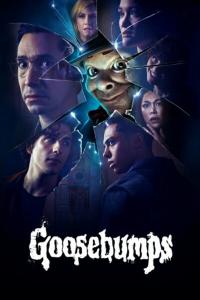Torrent details for "Koshy T. Fibonacci and Lucas Numbers with Applications Vol 2. 2019 [andryold1]" Log in to bookmark
Controls:
External index by SiteBot Verified
Category:
Language:
 English
EnglishTotal Size:
23.72 MB
Info Hash:
b211597b7a122fb9b8537b6a0a2ba6eca180aadc
Added By:
Added:
18-02-2023 23:07
Views:
168
Health:

Seeds:
1
Leechers:
0
Completed:
185
Textbook in PDF formatExternally indexed torrent If you are the original uploader, contact staff to have it moved to your account
Volume II provides an advanced approach to the extended gibonacci family, which includes Fibonacci, Lucas, Pell, Pell-Lucas, Jacobsthal, Jacobsthal-Lucas, Vieta, Vieta-Lucas, and Chebyshev polynomials of both kinds. This volume offers a uniquely unified, extensive, and historical approach that will appeal to both students and professional mathematicians.
As in Volume I, Volume II focuses on problem-solving techniques such as pattern recognition conjecturing proof-techniques, and applications. It offers a wealth of delightful opportunities to explore and experiment, as well as plentiful material for group discussions, seminars, presentations, and collaboration.
In addition, the material covered in this book promotes intellectual curiosity, creativity, and ingenuity.
Volume II features:
A wealth of examples, applications, and exercises of varying degrees of difficulty and sophistication.
Numerous combinatorial and graph-theoretic proofs and techniques.
A uniquely thorough discussion of gibonacci subfamilies, and the fascinating relationships that link them.
Examples of the beauty, power, and ubiquity of the extended gibonacci family.
An introduction to tribonacci polynomials and numbers, and their combinatorial and graph-theoretic models.
Abbreviated solutions provided for all odd-numbered exercises.
Extensive references for further study.
This volume will be a valuable resource for upper-level undergraduates and graduate students, as well as for independent study projects, undergraduate and graduate theses. It is the most comprehensive work available, a welcome addition for gibonacci enthusiasts in computer science, electrical engineering, and physics, as well as for creative and curious amateurs.
About the Author
Thomas Koshy, PhD, is the author of eleven books and numerous articles. As a professor of Mathematics at Framingham State University in Framingham, Massachusetts, he received the Distinguished Service Award, Citation for Meritorious Service, Commonwealth Citation for Outstanding Performance, as well as Faculty of the Year. He received his PhD in Algebraic Coding Theory from Boston University, under the guidance of Dr. Edwin Weiss











































